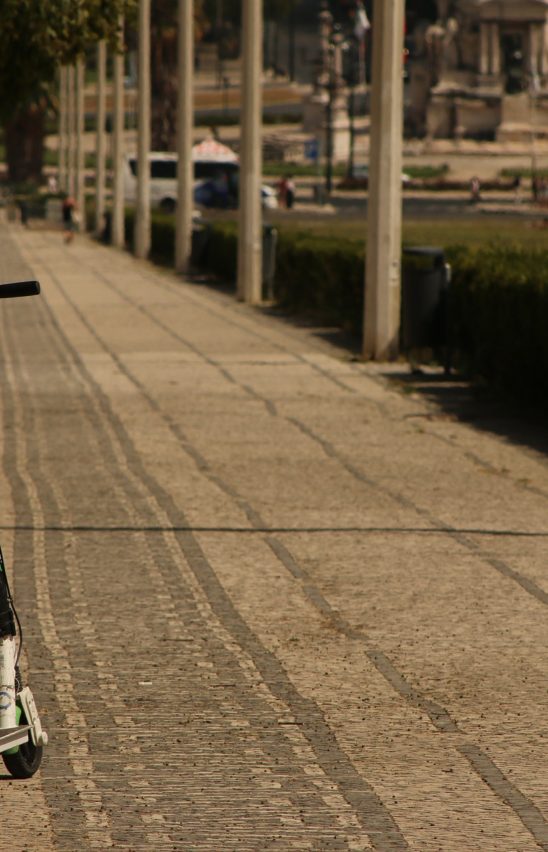
The “kickscooter war” in Paris, a communication battle that feeds another one
“Put an end to the anarchy”
Anne Hidalgo has decided to strike hard on Wednesday, June 5. She announced the reinforcement of the regulation on kickscooters in Paris. Surrounded by several deputies, the mayor of Paris revealed during a press conference, her decision to launch within a few months a call for tender to allow only two or three companies to exploit self-service kickscooters. Although, they will have to reduce the speed and supervise the parking, immediately.
Kickscooters seduce as much as they annoy. More than the bicycle in “free-floating”, which have almost disappeared. Kickscooters divide and polarize tensions. Among the main complaints, are the lack of civism of the users, the risk of accidents and the precarious social model imposed on the “juicers” (people who recharge the kickscooters every night for a few euros). But also, and above all, the annoyance caused by the kickscooters on the sidewalks. In only a few months, not less than 35 000 kickscooters have flourished in Paris, according to Geo4cast.
A battle of communication between two operators serving an economic war
This is a real issue for dozens of operators in Paris: they use the visibility and the massive presence of their kickscooters as a key to their performance, although they are unable to generate profits.
Even if they risk to “clog up” the public space, each of them want to pursue their expansion in order to be one of those who will take the pot when the others will have decided to stop everything, or in order to be the most credible thanks to their market share, within the scope of the Mayor’s next invitation to tender.
While critics and protests increase (with an expression of non-violent disapproval that involves dropping the kickscooters on the road or throwing them into the Seine or the Canal Saint-Martin), the good behavior of the operators and scooter users is the center of the issue for all the actors.
Many operators have chosen to focus their communication on encouraging users to adopt a better behavior. Lime, the leader of the French market just launched a campaign untitled “Trottinons responsable” or “Ride safe” to promote good practices and behaviors. They also opened a “Lime Academy” and announced the recruitment of 50 agents who will be responsible for enforcing the charter of good behavior signed with the City of Paris.
An operator who has launched recently in Paris, Lyon and Marseille made the choice to change its name from “Flash” (which only refers to speed), to “Circ”, which suggests more proximity and circular economy. Circ wants good behavior to be a differentiating element and the heart of their communication (systematic use of permanent contract, reduction of the available fleet and incitement to lawful parking…).
A communication strategy for the next political campaign
While Europe-Ecologie-Les Verts just obtained almost 20% of the votes in Paris during the European elections and LREM more than 30%, the list supported by Anne Hidalgo only got 8%. The mayor multiplies the messages towards her potential electorate.
Earlier this week, she persuaded Total to give up on being a sponsor of the 2024 Summer Olympics, claiming that “it would be hard for our fellow citizens to understand that we chose a firm which activity, based on the massive usage of carbon energy, has a significant impact on the environment”: in other words, she made a nod to environmentalists.
On Wednesday, she gave an interview to Libération regarding the specific challenges about social diversity and working-class neighborhoods in Paris. In her sights, the left-wings voters and more specifically the voters of La France Insoumise.
On Tuesday, with the measures regarding kickscooters, the Mayor wanted to prove that her long-standing commitment in favour of gentle mobility did not make her lose sight of her responsibilities concerning municipal police, especially the necessity to ensure pedestrians’ safety and freedom of movement on the sidewalks. She decided to take action and to regain control of this subject, source of irritation for many Parisians, especially elderly people, at the risk of bothering young workers, her main support. She also decided not to wait for the adoption of the French mobility orientation law – that will include measures regarding electric scooters.
One may only be struck by the concordance of topics between the most dynamic operators’ and the Mayor’s communication. The question, however, is whether this “objective complicity” will mutually strengthen their position or will be an expression of their respective weaknesses.
